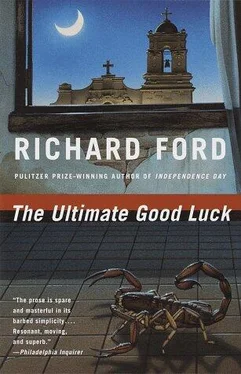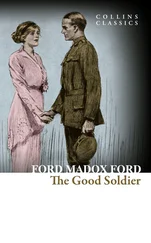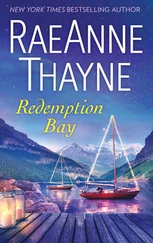“Do you still want me to protect you?” he said. He thought he might be able to, the first time ever.
“I don’t know,” she said. “I don’t like the way you think about things. You look at everything like it disappears down a hole that nothing ever comes out of. And that scares me.” He listened for Bernhardt’s car in the street. “Doesn’t that make you lonely?”
“That’s not the right question,” Quinn said.
“I’m sorry, then. What’s a good question?” she said.
“Whether it makes any difference to me if I am lonely,” he said.
“That’s what scares me most,” she said. “Because it doesn’t, does it?”
“I’m trying to think it does,” he said. She lay beside him on the bed, and he could feel her heart beating throughout the room. “I’m trying real hard right now to think it does.”
“Then maybe that’s a good sign,” she said. “I shouldn’t ask for a lot more.”
MOST OF THE STREETS leading into the Centro had been barricaded. Garrison troops in orange helmets patrolled the coils of concertina wire separating the open streets, their small eyes glowering at the sweeping headlights. Something was on now. The town seemed safer, as if a lock of certainty had been put on public life. Bernhardt drove carefully. He took the narrow streets beyond the Juárez Market, and through the section where the overland trucks were repaired. Lights in the crowded bays were blue and phosphorescent, and men’s legs hung off the open hoods. Acetylene smacked in the thick air and made the night appealing.
Bernhardt was weaving toward the carretera, staying near the curbs and making his turns elaborately. At an intersection the zócalo appeared suddenly back down the inky streets, the cathedral kliegs at the end gaseous and silver and imprecise. Soldiers stood in the middle ground, their rifles picketing the light, and the shrill sound of whistles came out of the dark. It was like Mardi gras, looking up Orleans toward Jackson Park at 4:00 A.M., the odd insulated feeling of time being lost.
“Where’re we going?” Quinn said.
“The country,” Bernhardt replied expansively. “Don’t worry about the soldiers.”
“What’re they doing?” Rae said from the back seat.
“Searching for paintings, or what they can find. Terrorism is faulty, it exposes unexpected things. Other people’s business sometimes.”
“Like yours?” Quinn said.
“No,” Bernhardt said and shook his head smiling. “My business is in the daylight only.”
“I don’t see why they close the main streets and leave the dark ones open,” Rae said. Her voice was flat and expressionless, like the soldiers’ eyes. She was staring at the dark buildings that slid by the edge of the headlights. She had on the lavaliere with the dancing man. The polished silver lit up the shadows.
“Some streets are secured so they may be used to different purposes,” Bernhardt said, engaged. “In the dark if you are not the army maybe you are a criminal. And if there is a mistake it must be hidden.” Bernhardt had on a shiny white camisola, embroidered like the one the deputy of penitentiaries had worn the day before, though more elegant and expensive. It made him seem more Mexican than before, as if he had shucked something self-conscious in his character that had never fit.
“What about us?” Rae said. “Are we mistakes?”
“No, no,” Bernhardt said, watching the street. “We are different.”
The car passed a street where troop trucks were stopped midway up the block, their headlights framing the wall of a building. Soldiers were moving in the light, but what was happening was unclear. Figures were passing too quickly. It was a police action. Quinn faced forward. You couldn’t tell what was happening without getting up close.
“What happens if they blow up our hotel?” Rae said calmly.
“Don’t think of that,” Bernhardt said.
“I’m not afraid of it,” she said. “It was just a thought.”
“Guerrillas have bad timing,” Bernhardt said apropos of nothing. “They are like children. Tomorrow will be safe. They forget.” He smiled. More fast pocking sounds commenced someplace nearby, and Quinn began to phase it gently out of the flow of thought.
Bernhardt took the highway north, the direction of no lights. Quinn let the air flood in, cool and without odor, no sage or the smell of corn being burned. It could’ve been anywhere, Michigan or Louisiana or California. No-place air. There were phantom cars on the road, coming high speed, Americans scared of stalling on the highway. Men with machetes wandering out of the agave fields to lie by the road. Everybody’d heard the stories.
The road edged the mountain terminus, then down again, and below toward the west was the migrant camp, unexpected, sprawled onto the tableland like a lake of subsurface lights, night smokes strung up feebly in the dark. It surprised Quinn the camp was here and not someplace else. In his mind it had been inside the mountains, and he wasn’t sure it was the same camp as in the afternoon.
An inspection sat at the point the highway quit descending and flattened into the agave plats. Soldiers on the north side were standing under a lighted plywood shelter. They were drinking mescal from Coke bottles and moving into and out of the light with extreme deliberation. A corporal came to the window, and two soldiers pointed their rifles woozily at the car and frowned. Quinn tried but couldn’t feel the danger, and smelled instead the thick boredom of the station. The soldiers were unnecessary to the frame of his intentions. It was part of the safety the town exuded. The soldiers were here to protect the citizens from the camp out in the fields. Bernhardt showed a card, spoke authoritatively to the soldier, then eased back into the darkness, and Quinn became soothed again by the night, protected and low, and ahead of him above the headlights the sky emerged night blue, encroaching by inches over the moon.
Bernhardt removed the Llama from under his shirt and put it under the dash. “People, guerrillas,” he said distractedly, “sometimes they will shoot a car in town.” He pulled gently on the pistol to test the ease of drawing it. “Now there is no danger.” He glanced in the mirror at Rae.
“You want to tell us where we’re going?” Quinn said.
“You must see Luis Zago,” Bernhardt said.
“Is he your big shot?”
“Sí,” Bernhardt said. He produced a Coke bottle of mescal from the floor. He unscrewed the top, took a drink, and offered it. The mescal had a nauseous citrus smell, a smell you couldn’t drink, and Quinn handed it back. He wanted his stomach controlled, no panics. “He is an important man,” Bernhardt continued. “He has no fixed ideas.” He smiled.
“Like you?” Quinn said.
Bernhardt screwed the cap back on the bottle and set both hands on the steering wheel. He seemed to like the question. “Yes,” he said. “But I am a lawyer, and even then it is not always convenient. Your business is not so convenient.” He looked at Quinn purposefully as if he meant something he hadn’t said.
Rae touched his neck softly. “Wouldn’t it be nice to leave here at night,” she said in a filmy whisper. “It’d be like putting things behind us, just losing them in the dark. That’d be wonderful.”
“When we leave,” Quinn said.
“Of course,” she said. “When we leave. I meant that. I didn’t mean tonight.”

What he could see of the house from the highway was like the running lights of a ship miles out, a giant hulk in the night moving at a distance impossible to gauge, on a horizon impossible to locate.
Читать дальше








![Theresa Cheung - The Dream Dictionary from A to Z [Revised edition] - The Ultimate A–Z to Interpret the Secrets of Your Dreams](/books/692092/theresa-cheung-the-dream-dictionary-from-a-to-z-r-thumb.webp)




